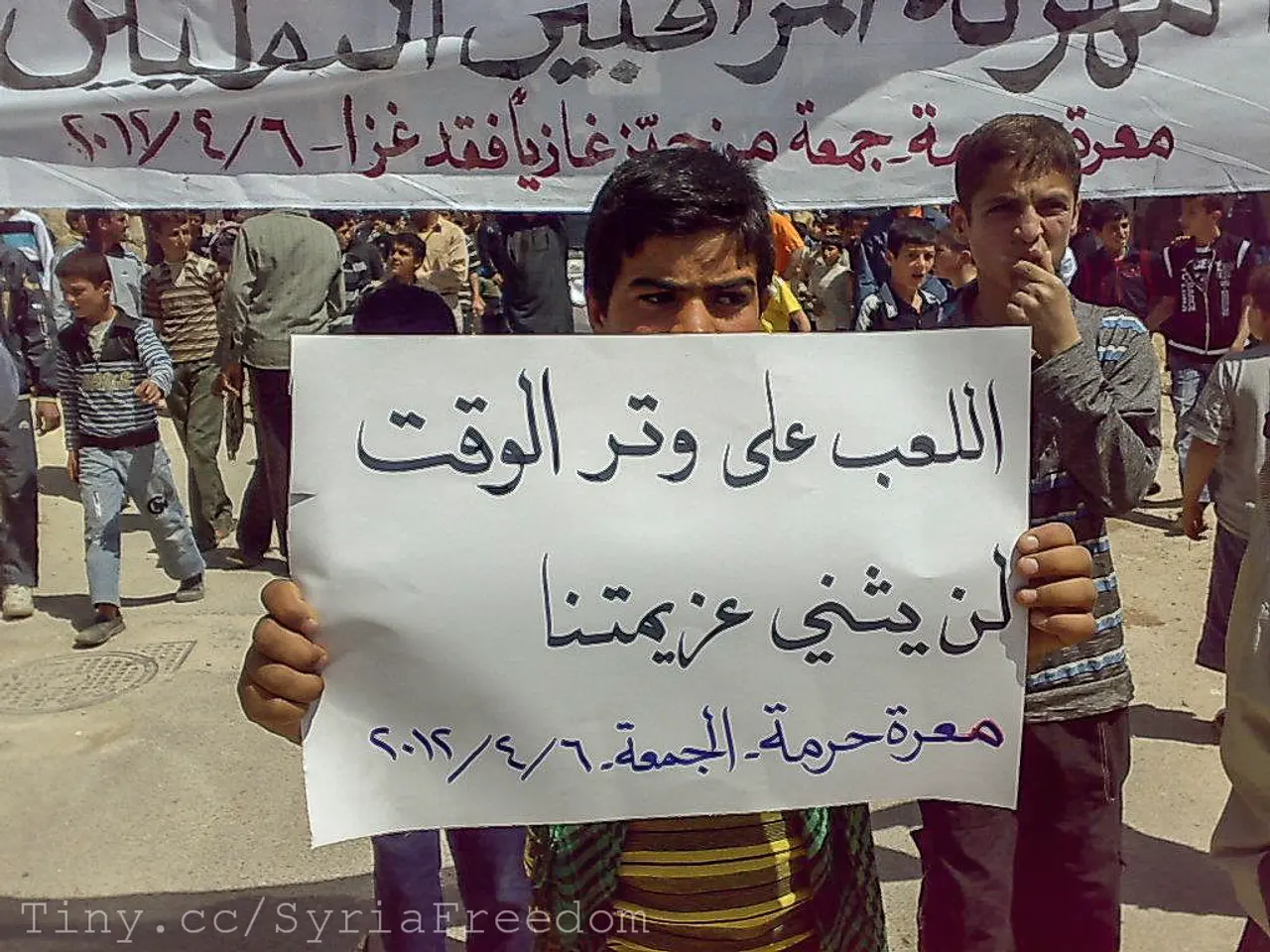Thailand's border confrontation with Cambodia triggers a deep-seated political predicament.
A Hot Mess: Thai PM Paetongtarn Shinawatra Under Fire
Thailand's Prime Minister Paetongtarn Shinawatra is feeling the heat, facing criticism from both royalists and progressives for her clumsy handling of the ongoing border dispute with Cambodia. Her fragile coalition between the Shinawatra political party and conservative parties is on the brink of collapse since August 2024, with the specter of a military coup back in the spotlight.
The border tension between Cambodia and Thailand has been a point of contention since February, with accusations flying back and forth over alleged incursions into disputed border areas surrounding Angkor-era Khmer temple ruins. The situation escalated further in May, following a fatal altercation between soldiers from both countries on the 28th. Cambodia then took the dispute to the International Court of Justice (ICJ) on June 15, to the dismay of Bangkok who prefers private negotiations.
Thailand has enforced stricter border controls, and most recently, Cambodia's authoritarian regime allowed a huge nationalist rally in Phnom Penh's streets. The current political turmoil arose from a leaked conversation between former Cambodian Prime Minister Hun Sen, now influential as Senate President, and Shinawatra on June 15. In the conversation, Shinawatra addressed Hun Sen as "uncle," appeared to give in to his demands to reopen the borders, and remarkably pleaded with him to disregard the warlike comments of the Thai general in charge of the contested region, dismissing him as one of her opponents.
Background and Escalation
The crisis centers on years-long disagreements over territorial claims along the contested border, notably near the Preah Vihear temple complex and the convergence point with Laos where the borders meet, known as the Emerald Triangle. The dispute reached a boiling point in May 2025, resulting in a violent skirmish between the two countries that left a Cambodian soldier dead. Both sides blamed each other for initiating the violence, with Cambodia accusing Thailand of starting the incident at a Cambodian base and Thailand claiming Cambodian forces kicked off the shooting incident due to misunderstandings in the disputed area[1][2][3].
This conflict served as a catalyst for military mobilizations on both sides and sparked fears of a larger conflict. Despite attempts at de-escalation, including troop repositioning agreed on in June 2025, the underlying issues remain unresolved, making the situation highly volatile[1][2][3].
Paetongtarn Shinawatra's Wobbling Coalition
At home, the border crisis has brought to light the weaknesses in Prime Minister Paetongtarn Shinawatra's administration. The release of a private conversation between Shinawatra and Cambodian Senate President Hun Sen in mid-June 2025 became a public political scandal, uncovering the use of personal diplomacy as a political tool, leading to widespread public embarrassment and accusations of political sabotage that have eroded public trust in her leadership[1].
The strong nationalist sentiments stirred by the territorial dispute have intensified pressure on the Shinawatra government to take a firm stance, complicating diplomatic flexibility. The crisis has amplified existing divisions within Thailand's political landscape, making territorial sovereignty a potent domestic issue. This internal pressure could potentially undermine the unity and stability of her governing coalition in a already polarized climate[1].
The Ever-Present Threat of a Military Coup
Although the conflict is unfolding in 2025, worries about military intervention to resolve political turmoil in Thailand have repeatedly surfaced in the past. The escalating nationalist tensions, combined with the perceived vulnerability of the government during the border crisis and diplomatic missteps, have heightened fears of a military coup.
Thailand has a history of military coups, triggered by political instability and crises involving national security or sovereignty. The current border conflict and the government's handling of it have fueled arguments used by military factions to justify intervention. As of mid-2025, no coup has taken place, but the risk remains substantial given the unstable political climate and volatile security situation triggered by the border dispute[1][2].
- The ongoing border dispute between Thailand and Cambodia has exacerbated political tensions within Thailand, with war-and-conflicts and general-news intensifying the pressure on Prime Minister Paetongtarn Shinawatra's fragile coalition, politics hanging in the balance as the specter of a military coup reemerges.
- The border tension, marked by the invasion of privacy in a leaked conversation between Shinawatra and Cambodian Senate President Hun Sen, has uncovered weaknesses in Shinawatra's administration, raising questions about her ability to handle delicate political matters and navigate the turbulent waters of war-and-conflicts and politics, with votes potentially swung by the concerns of both royalists and progressives.






